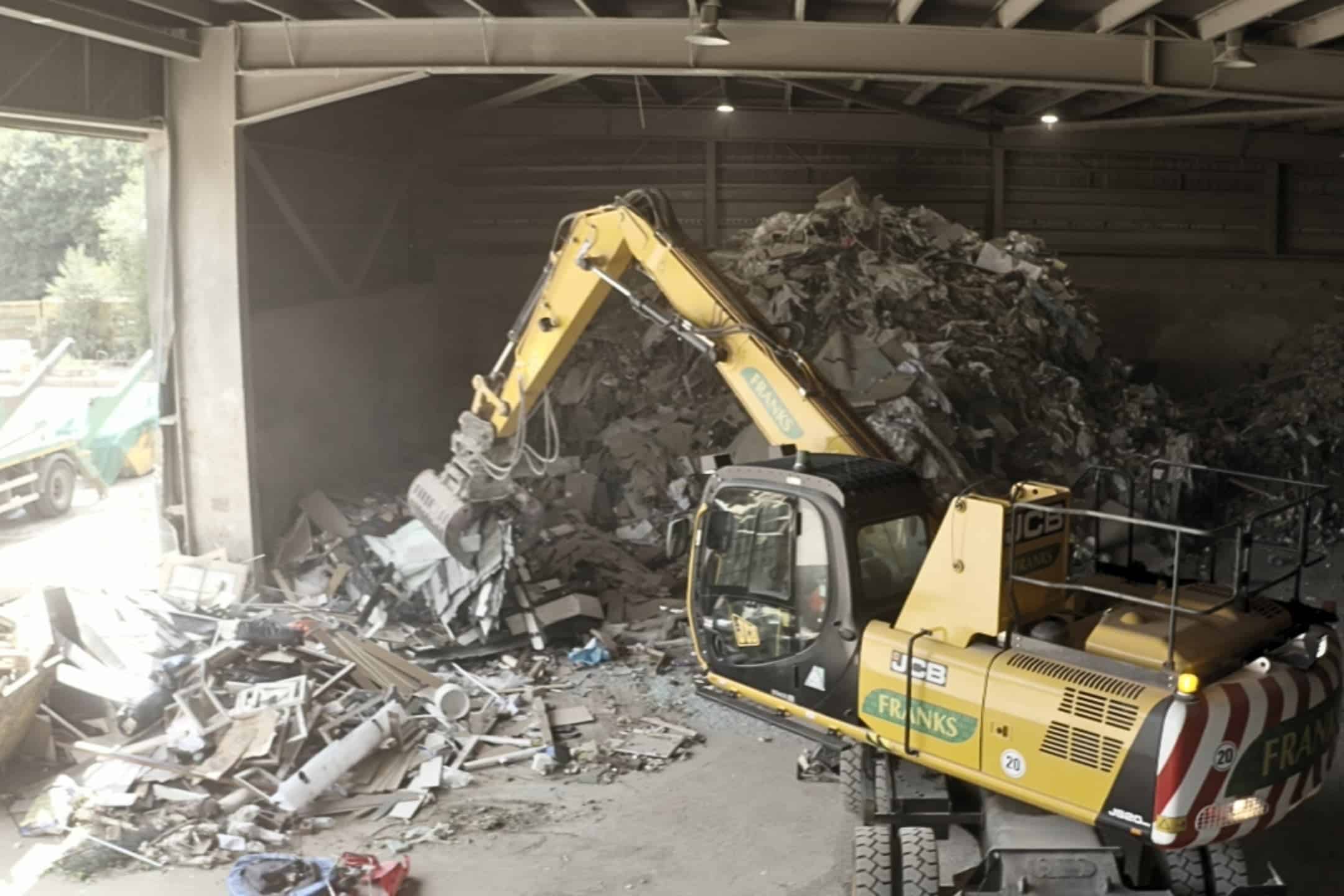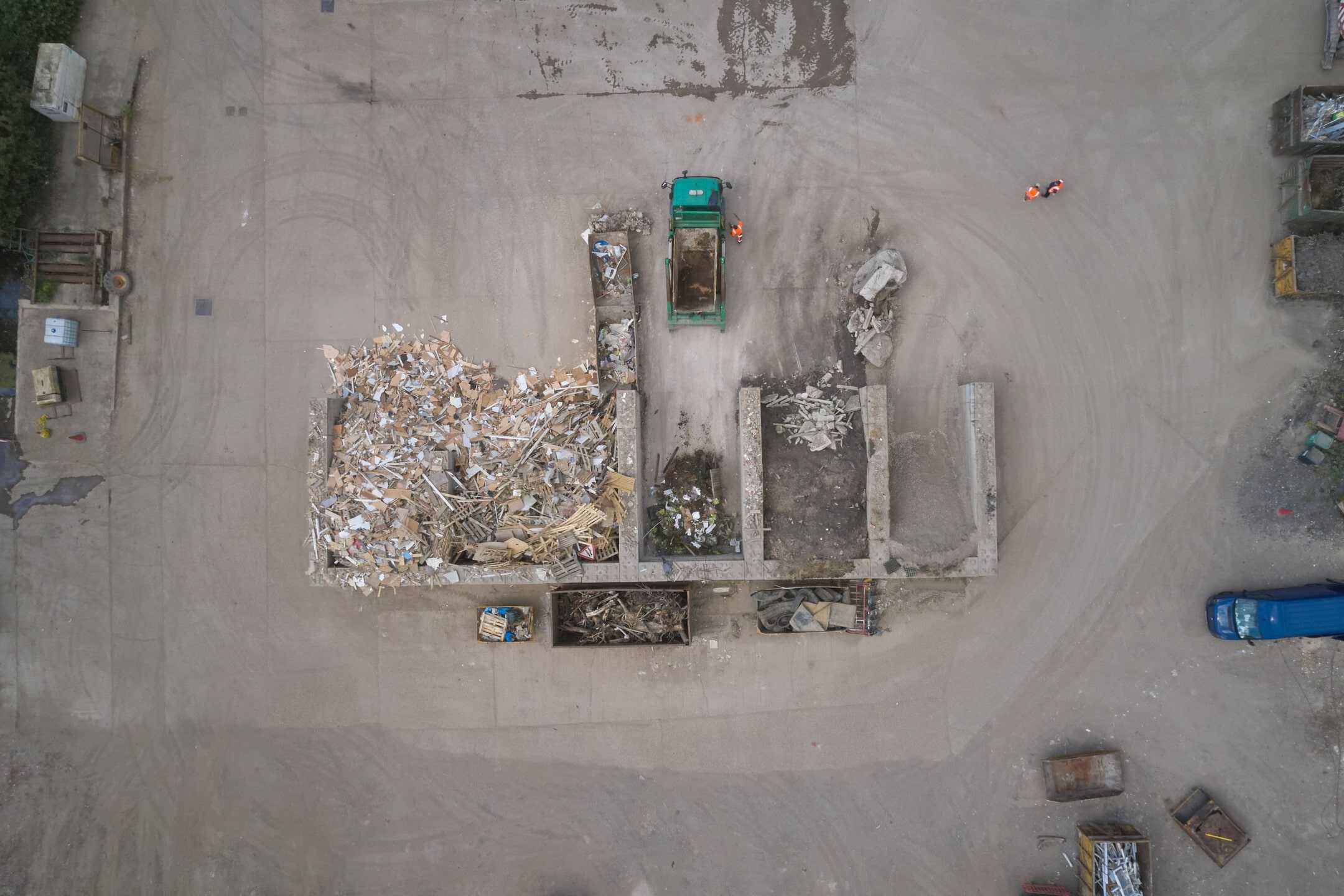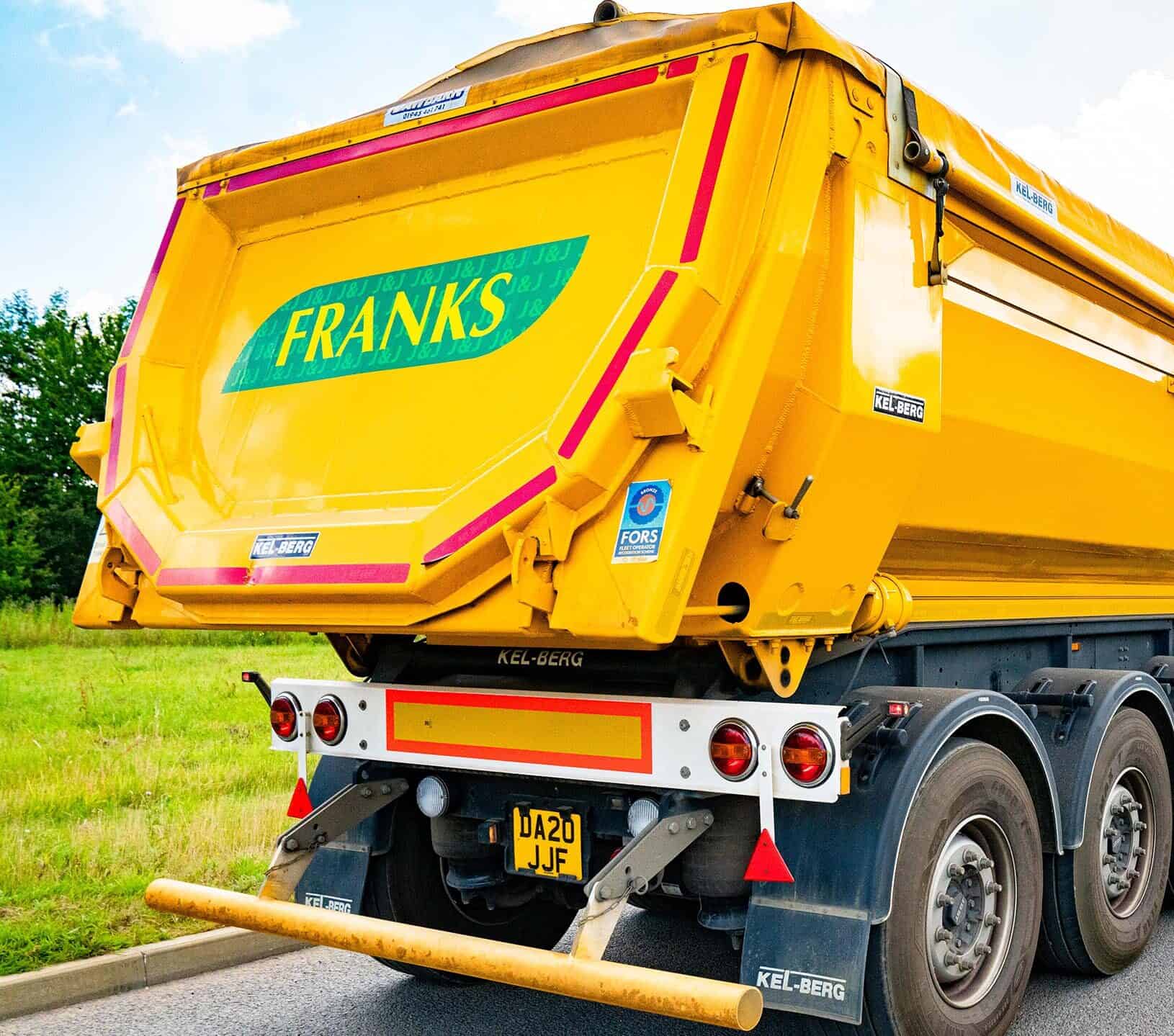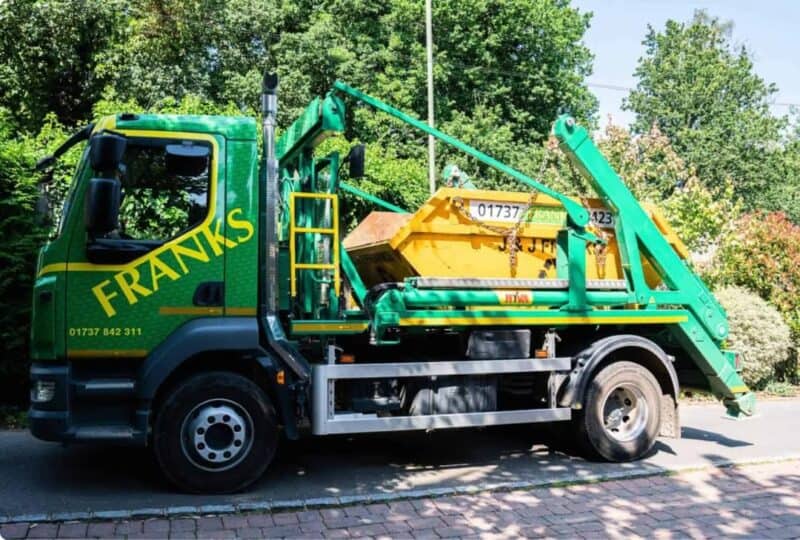In the construction and demolition industries, managing waste is a crucial aspect of operations. Mixed skip waste often contains a variety of materials, from bricks and concrete to plastics and metals, which can be repurposed and recycled rather than discarded. At J&J Franks, we transform mixed skip waste into valuable, sorted recyclables, diverting substantial amounts of waste from landfills and promoting sustainability.
Understanding Mixed Skip Waste
Mixed skip waste refers to the diverse range of materials typically disposed of in skip bins. This waste can include construction debris, household waste, and garden waste. Commonly, materials found in mixed skip waste bins are:
- Concrete and Bricks
These are abundant in construction waste and can be crushed and reused as aggregate.
- Metals
Metals like steel and aluminium are valuable resources that can be melted down and reused in manufacturing.
- Wood and Timber
These materials are often found in construction and renovation waste and can be repurposed for various applications or converted into biomass.
- Plastics and Packaging
A common component of household and commercial waste, these can be recycled into new plastic products.
- Soil and Green Waste
Soil and organic matter from garden waste can be composted and reused.
Handling this mixture requires an intricate process to efficiently separate and recycle as much of the material as possible.
Initial Processing of Mixed Skip Waste at the Recycling Facility
Once mixed skip waste arrives at our Betchworth recycling facility, the first step is the pre-sorting process. This involves removing bulky or oversized items that may interfere with the mechanical sorting equipment.
Following this initial sorting, the remaining materials are transferred to advanced separation equipment. Our state-of-the-art facilities are used to filter materials by size, helping separate smaller debris from larger items. This mechanical process streamlines the next phase, allowing materials to move to dedicated sorting stations based on their type.
Methods for Separating Different Types of Recyclable Materials
There are various separation processes which can be used to ensure each material type is sorted accurately and efficiently:
- Magnetic Separation for Metals
Metals are typically the easiest to separate due to their magnetic properties. Magnets are employed to attract ferrous metals such as steel and iron, effectively separating them from other waste streams. Non-ferrous metals like aluminium, which are not magnetic, are separated using eddy current separators, which create a magnetic field that repels these metals.
- Air Classification for Lightweight Materials
Air classifiers are used to sort lighter materials such as paper, plastic, and some types of wood from denser materials. This process involves using air streams to lift lightweight materials, which are then collected separately, while heavier items fall through and continue to the next stage.
- Density Separation for Aggregates
Density-based separation methods, such as flotation, are used to separate materials based on their weight. Concrete, bricks, and other heavy aggregates are separated from lighter materials, such as soil and some plastics, using water or air-based systems. Once isolated, these heavy aggregates are often processed further to create recycled construction materials.
- Screening and Washing
To ensure a high-quality output, certain materials, particularly aggregates, go through screening and washing processes. This helps remove contaminants like soil and debris, producing cleaner recycled products that can be reused effectively in construction projects.
Environmental Benefits of Sorting Recyclable Materials
Recycling mixed skip waste provides numerous environmental benefits. Firstly, it reduces the volume of waste sent to landfills, which helps conserve valuable landfill space and mitigates pollution. This, in turn, helps decrease the release of greenhouse gases, which are typically generated by decomposing waste in landfills.
By recycling materials like metals and plastics, we also conserve natural resources and reduce the need for raw material extraction, which often has a significant environmental impact. Additionally, the recycling process generally consumes less energy than creating new materials from scratch, therefore, reducing overall carbon emissions.
Financial and Regulatory Benefits
Using recycled materials also presents financial advantages. Recycled aggregates, for example, are typically more affordable than raw materials and can be used in various construction applications. This cost-effectiveness can make a difference in large projects, where the volume of required materials is high. Furthermore, construction companies that opt for recycled aggregates can enhance their environmental credentials, which can improve their market position and attract clients looking for sustainable practices.
From a regulatory perspective, J&J Franks ensures that all materials are processed in compliance with UK waste management regulations. We adhere to strict guidelines at every stage of processing, from initial collection through to disposal, helping construction companies avoid potential fines and ensuring compliance with legal standards.
For more information on our recycling services and how we can help manage your construction waste efficiently, please contact us today.










